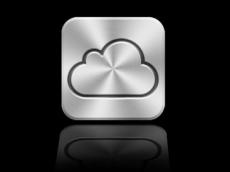|
|
TODAY.AZ / Weird / Interesting
Apple boosts protection against hackers
23 March 2013 [12:47] - TODAY.AZ
 Apple is introducing two-factor authentication for users of its iCloud and other services, adding an extra layer of protection against hackers trying to access peoples' accounts by requiring mobile phone verification for changes in personal details or online purchases.
Apple is introducing two-factor authentication for users of its iCloud and other services, adding an extra layer of protection against hackers trying to access peoples' accounts by requiring mobile phone verification for changes in personal details or online purchases.The move was announced coincidentally just hours after the weakness of single-password systems was demonstrated publicly on Twitter when the BBC Weather Twitter account was hacked, apparently by pro-Syrian activists who either guessed the password or captured it from an unwary user of the account. Twitter is working on the introduction of two-factor authentication, but has not announced any date for its introduction.
The move brings iCloud, which has more than 250m users, into line with Google's Gmail services, which have offered such "2FA" security for some years.
Two-factor authentication relies on the user having a "trusted" mobile phone in their control - though users are also given a backup code in case they lose their phone or are outside network coverage. Any change to the personal details made online have to be verified using a code that is sent to the mobile phone. Without the code, the changes - such as altering a backup email address or password - will not be approved.
However it doesn't prevent children or others from spending large amounts of money on devices where they already have the password; that has to be prevented by settings on the device.
The 2FA system replaces "security questions" which often contain information about people that is publicly available.
The change can be made on the under "manage your Apple ID".
The weakness in single password security was highlighted last year when the writer Mat Honan saw his iCloud account wiped after hackers accessed it after getting access through an Amazon account. Apple was criticised for allowing password resets over the phone, while Amazon was criticised for accepting changes to account settings via phone. Honan's experience - in which the hackers guessed his Apple email, and then broke into his Amazon account via a credit card number and billing address.
The hackers then methodically wiped his Gmail account of emails, took control of his Twitter account, and remotely wiped his iPhone, Macbook and iPad.
Apple said: "Apple takes customer privacy very seriously, and two-step verification is an even more robust process to ensure our users' data remains protected. We are now offering our users the choice to take advantage of this additional layer of security."
The service will initially only be available in the US, UK, Australia, Ireland and New Zealand.
/The Guardian/
URL: http://www.today.az/news/interesting/120578.html
 Print version
Print version
Views: 1826
Connect with us. Get latest news and updates.
See Also
- 19 February 2025 [22:20]
Visa and Mastercard can return to Russia, but with restrictions - 05 February 2025 [19:41]
Japan plans to negotiate with Trump to increase LNG imports from United States - 23 January 2025 [23:20]
Dubai once again named cleanest city in the world - 06 December 2024 [22:20]
Are scented candles harmful to health? - 23 November 2024 [14:11]
Magnitude 4.5 earthquake hits Azerbaijan's Lachin - 20 November 2024 [23:30]
Launch vehicle with prototype of Starship made its sixth test flight - 27 October 2024 [09:00]
Fuel prices expected to rise in Sweden - 24 October 2024 [19:14]
Turkiye strikes terror targets in Iraq and Syria - 23 October 2024 [23:46]
Kazakhstan supplied almost entire volume of oil planned for 2024 to Germany in 9 months - 23 October 2024 [22:17]
Taiwan reported passage of Chinese Navy aircraft carrier near island
Most Popular
 President Ilham Aliyev congratulates his Peruvian counterpart
President Ilham Aliyev congratulates his Peruvian counterpart
 To Russian propagandists - with an iron fist on the head
To Russian propagandists - with an iron fist on the head
 EU airports set to scrap 100ml liquid rule with new screening tech
EU airports set to scrap 100ml liquid rule with new screening tech
 Life returns to Khojaly’s villages as former IDPs return home
Life returns to Khojaly’s villages as former IDPs return home
 Tabriz–Baku flight route reopens
Tabriz–Baku flight route reopens
 Liverpool pays tribute to late striker Diogo Jota during friendly match against Milan
Liverpool pays tribute to late striker Diogo Jota during friendly match against Milan
 Azerbaijan to showcase tourism potential in Saudi Arabia and Jordan
Azerbaijan to showcase tourism potential in Saudi Arabia and Jordan
